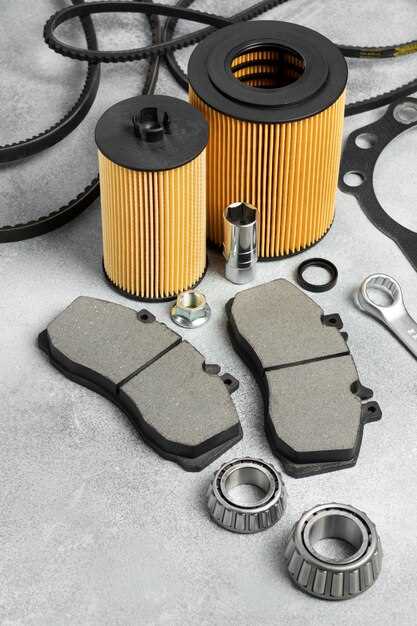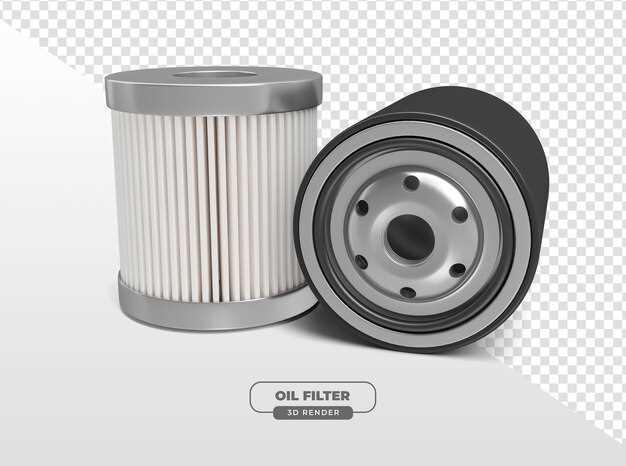
As automotive technology continues to evolve, performance enhancement remains a top priority for both manufacturers and enthusiasts alike. For 2024 vehicle models, the significance of quality air filters cannot be overstated. They play a crucial role in optimizing engine performance, fuel efficiency, and overall vehicle longevity. By refining the air intake process, the right air filter can unleash the full potential of modern engines, ensuring that every drop of fuel is used efficiently.
In this article, we will explore the leading air filters available for the 2024 model year, focusing on their design, filtration efficiency, and the unique benefits they offer to drivers seeking superior performance. From high-flow options that guarantee improved horsepower to eco-friendly variants contributing to reduced emissions, the selection of air filters is diverse. It’s essential to understand what makes each product stand out in a crowded market.
We will also discuss the compatibility of these air filters with various vehicle types and the installation process, ensuring that you can make an informed decision based on your specific needs. Whether you are looking to boost your daily commute or enhance your weekend driving experience, our comprehensive guide will help you choose the best air filter for your 2024 vehicle model to achieve unmatched performance and responsiveness.
Top Brands and Models to Consider for Maximum Airflow
When seeking the best performance air filters for 2024 models, several brands stand out by consistently delivering exceptional airflow and filtration efficiency. Here, we highlight top brands and their standout models that are engineered to enhance engine performance and longevity.
K&N Engineering is a leading choice among performance enthusiasts. Their HP-1002 and 33-5040 filters are designed to provide superior airflow while implementing a multi-layer cotton gauge to capture dirt and debris effectively. These filters are washable and reusable, making them an eco-friendly option that also saves money over time.
AEM Induction offers innovative air filters such as the 21-2223DC, which is constructed with a synthetic material that promotes high airflow rates and excellent filtration. Designed for those looking for a balance of performance and maintenance, this model is particularly appealing for street and performance driving.
Green Filter produces high-performance air filters like the GF-8005, which are notable for their exceptional airflow and dust-holding capacity. Made with a unique filtration media, these filters ensure that engines get more air without compromising cleanliness, resulting in better throttle response and overall performance.
Airaid presents the 451-302 model, specifically designed for modern vehicles to enhance air intake and efficiency. Utilizing a proprietary blend of synthetic and natural materials, Airaid filters permit large volumes of clean air while effectively filtering out harmful particles.
Finally, Spectre Performance offers the HPR9851 filter, which combines affordability with high quality. This model features a multi-layer design that maximizes airflow and is easily washable, making it a practical choice for those who wish to boost their vehicle’s efficiency without breaking the bank.
Choosing the right air filter can significantly impact your vehicle’s performance. Opt for any of these brands and models to ensure maximum airflow and enhance your driving experience in 2024 and beyond.
Installation Tips for Enhanced Vehicle Performance

Installing high-performance air filters can significantly enhance your vehicle’s efficiency and power. To ensure that you achieve the best results, follow these essential installation tips:
First, carefully read the manufacturer’s instructions provided with the air filter. Different models may have specific requirements for installation, so it’s crucial to follow the guidelines to avoid any compatibility issues.
Before you begin the installation, gather the necessary tools, such as screwdrivers, wrenches, and cleaning supplies. A clean workspace will help prevent contaminants from entering the engine during installation.
Begin by disconnecting the negative terminal of the battery to ensure safety. This step prevents any electrical short circuits while handling components around the air intake system.
Next, remove the existing air filter. Take note of how it is positioned and the direction of airflow, as this will guide you during the installation of the new filter. Clean the air filter housing thoroughly to remove dust and debris, which can hinder airflow and reduce performance.
When installing the new air filter, ensure it fits snugly into its designated slot. Check for any gaps or misalignments that might allow unfiltered air to enter the engine. Proper sealing is critical for optimal performance.
Once the air filter is securely in place, reconnect the air intake hose and any clamps or fasteners. Make sure these connections are tight but not over-tightened, which could damage the components.
Once installation is complete, reattach the negative battery terminal. Start the engine and listen for any unusual sounds, which may indicate an installation issue. Monitor the vehicle’s performance over the following days to assess any improvements.
Lastly, consider regular maintenance of the air filter, as proper upkeep will ensure sustained performance gains. Check the filter periodically and replace or clean it according to the manufacturer’s recommendations.
Comparing Stock vs. Performance Filters: What You Need to Know

When it comes to enhancing your vehicle’s performance, the choice between stock and performance air filters plays a crucial role. Stock filters are designed to meet the OEM specifications, ensuring adequate air intake while maintaining engine longevity. They use standard materials that provide sufficient filtration but may not optimize airflow. In contrast, performance filters are engineered for increased airflow and reduced restriction, which can lead to improved throttle response and horsepower.
Performance air filters often utilize high-flow designs and synthetic or foam materials, allowing for greater filtration efficiency. This design not only enhances engine performance but also optimizes fuel economy under certain driving conditions. Nonetheless, drivers should consider the potential trade-offs; performance filters typically require more maintenance and cleaning compared to their stock counterparts.
Another important factor is the installation process. Stock filters are usually straightforward to replace and do not require specialized tools, whereas performance filters may necessitate precise installation to fully realize their benefits. Additionally, some performance filters come with a higher initial cost but can be a worthwhile investment, considering their durability and reusable nature.
Ultimately, the choice between stock and performance air filters depends on your driving style and objectives. If maximum efficiency and performance are your goals, upgrading to a performance filter may be advantageous. However, if you prioritize reliability and ease of maintenance, sticking with stock filters might be the better route. Evaluating your vehicle’s specific needs and modifications will guide you in making an informed decision.


